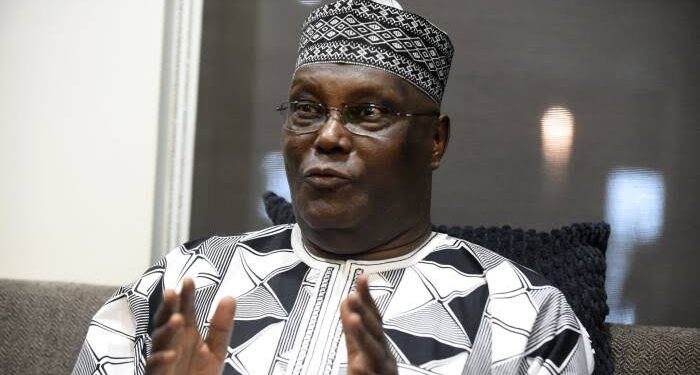The Peoples Democratic Party’s 2023 presidential candidate, Atiku Abubakar, has attacked President Bola Tinubu’s Federal Government for imposing a ridiculous 18-year-old age limit on NECO and WAEC exams, claiming it prevents students from applying for scholarships.
Remember that the Federal Government forbade anyone under the age of eighteen from taking the WAEC and NECO exams? Prof. Tahir Mamman, the Minister of Education, made this revelation while appearing on Channels Television’s “Sunday Politics” show.
Mamman claimed that the federal government has directed WAEC, which is in charge of the West African Senior School Certificate Examination, and NECO, which administers the Senior School Certificate Examination, to enforce the 18-year-old age limit for candidates sitting these tests.
On Wednesday, the former Vice President turned to his verified Facebook page to criticise the policy, calling it antiquated. Atiku described the approach as contentious and called for widespread protest from those who cherish intellectual freedom and accessibility.

He stated, “Tinubu’s regulation on the age limit for tertiary education entrance dates from the Stone Ages.
“The Federal Ministry of Education’s recent policy of setting age limits for enrolment into postsecondary schools is nonsensical and a discouragement to scholarship. “The policy violates the concept of delineation of responsibilities in a federal form of government like ours, and it paints a vivid picture of how the Tinubu administration acts like a lost sailor on the high seas.
On the other hand, in light of the numerous problems plaguing our educational system, how is an anti-scholarship regulation like this the next logical step? In other words, education is included in the concurrent list of schedules in the Nigerian constitution, where the sub-national government has more powers than the federal government. The former vice president emphasised that letting subnational governments enact their own laws or regulations pertaining to education is the most successful worldwide strategy.
Atiku went on to say, “Therefore, it is unconstitutional for the federal government to legislate on education in the form of a decree.” “The ideal worldwide standard for such regulation is to allow subnational governments to enact education-related legislation or policies.
“It is disheartening that, despite introducing this offensive policy, the government accidentally stated that it had no plans to cater to very brilliant students. That statement is embarrassing to the country’s intellectuals because it portrays Nigeria as a country that does not value brilliant students.
“The irony here is that if the federal government plays any role in education, it will establish systems to discover and award scholarships to brilliant students regardless of their age when seeking for admission to postsecondary schools.
“This controversial policy belongs in the Stone Ages and should be roundly condemned by everyone who believes in intellectual freedom and accessibility.”
In Essence
The age limit policy appears to be a blanket regulation that does not take into account the diverse educational pathways and the varying intellectual capabilities of students across Nigeria.
By setting an age floor for these crucial exams, the government could inadvertently disadvantage younger students who are academically prepared to take these exams earlier. This could also restrict their access to scholarships and other opportunities that are often time-sensitive.
Atiku’s point about the policy being “antiquated” and out of step with global best practices is particularly compelling. In many parts of the world, educational systems are designed to be flexible, accommodating students based on their academic readiness rather than their age.
By imposing a rigid age limit, the policy could stifle the potential of Nigeria’s brightest young minds, preventing them from advancing at a pace that matches their capabilities.

















